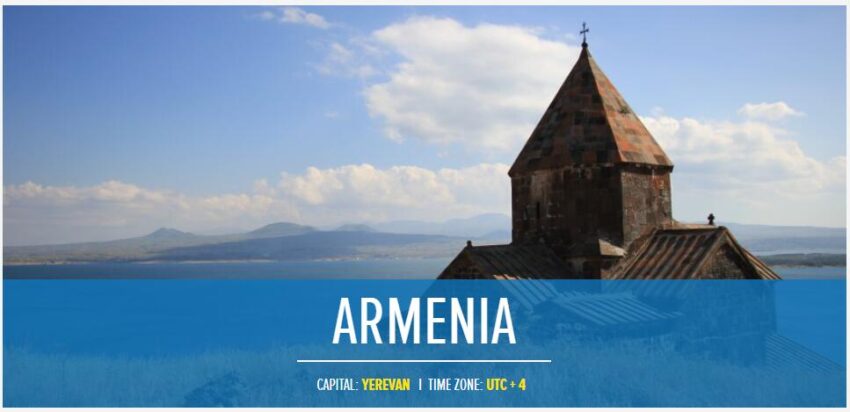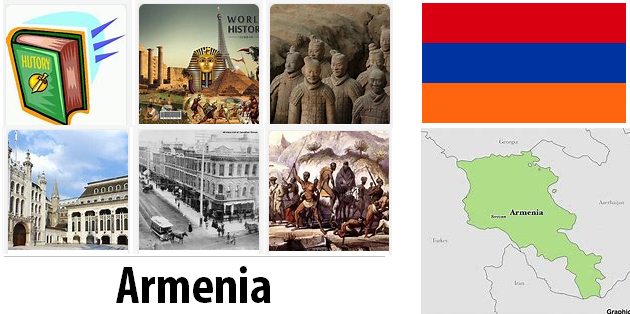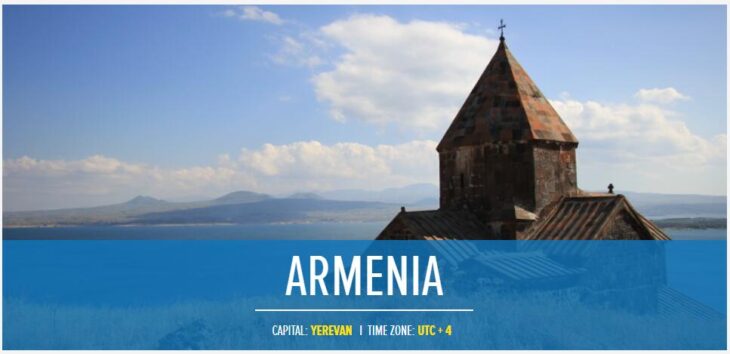During the Balkan wars the Armenians remained calm. At the outbreak of the First World War, Armenia, driven by some great European powers, began to fight for independence. He asked for an outlet on the Mediterranean, beyond those on the Black Sea and the Caspian Sea.
According to Abbreviationfinder, an acronym site which also features history of Armenia, the Treaty of Sevres, never applied, created a very reduced Armenia which was mutilated and even suppressed in the agreements between Turkey and the Soviet Union.
The first declaration of independence of 22 April 1918, followed the provisional union with Georgia and Azerbaijan.
In 1922 it became part of the great Soviet Federation of Internal Russia.
Until 1936, in union with Georgia and Azerbaijan, Armenia formed a Federative Republic; later it was the Soviet Socialist Republic of Armenia, directly dependent on Moscow.
Under the tutelage of Russia Armenia experienced great progress in all sectors, both agricultural and industrial. Grandiose public works greatly facilitated the existence of the population who also enjoyed a good health and cultural system. The capital Erivan was embellished with large monumental buildings. Great development and progress was made in the figurative, musical, theatrical and book arts. And even political activity, although influenced by the Soviet one, was able to express strong nationalistic views.
During the Second World War Armenia provided valuable help in the war effort made by Russia. The Soviet authorities in turn treated the Armenian Orthodox Church with particular regard when the election of the new Patriarch was necessary in 1946, who was the Cheorekgian archbishop, that is, George VI. In fact, they allowed all Armenian delegates to come to Erivan from all continents by traveling at the expense of the Soviet Union. All this was greatly appreciated by the thousands of Armenian citizens who took refuge abroad due to incompatibility with Soviet communism. And in 1947 there was a great return to home of many Armenian citizens, especially of the lower classes.
In foreign policy, Armenia was protected by Russian protection, especially in the claims of some border territories, such as the Anatolian provinces of Trebizond, Van and Erzerum, held by the Turks.
Meanwhile, the economic situation continued to progress mainly with the aluminum and synthetic rubber industries and due to the effect of the eight hydroelectric plants set up after the drying up of most of the marshes of Lake Savan. There was also a large increase in the textile and canning industries sector.
Although the Armenian refugees continued to flow in large numbers until 1948, they also remained in good numbers in Georgia, Azerbaijan and some Russian provinces.
After years of political stability together with the other republics of the Soviet Union, Armenia simply proclaimed itself the Republic of Armenia on September 23, 1991. After some internal conflicts, the Constitution was drafted and L. Ter-Petrossian was appointed head of state, leader of the Armenian National Movement.
The question of Nagorno-Karabah, an Armenian territory on Azerbaijan soil, was immediately put on the carpet. A brief conflict arose in 1994. During 1995 there was an exchange of prisoners and the following year a preliminary peace agreement was signed, so that the region, although not officially recognized by the government of Erivan, obtained full autonomy administrative.
But the conflict, albeit brief, had taken an enormous financial strain; moreover, many Armenian immigrants had returned from Azerbaijan, aggravating the already precarious economic situation. Demonstrations of discontent therefore arose, also because the opposition forces did not agree with Ter-Petrossian regarding the privatization of companies and the liberalization of trade.
With growing opposition Ter-Petrossian thought it appropriate to apply restrictive measures and in fact abolished nine parties, including the Armenian Revolutionary Federation, the main opponent, also accused of fomenting terrorism.
The first post-Soviet elections took place in 1995 and registered the victory of the Republican Bloc. A new constitution was promulgated which gave the president greater powers. In 1996 the presidential election reconfirmed Ter-Petrossian and in March 1997 he was appointed head of government R. Kocharian, former president of the self-proclaimed Republic of Nagorno-Karabah. The Azerbaijani government protested and stopped the peace negotiations that Ter-Petrossian was pursuing on the basis of a compromise agreement.
This provoked strong opposition from the Armenian nationalists who forced Ter-Petrossian to resign as president in February 1998. And in March 1998 the new presidential elections awarded victory to Kocharian, who developed his policy on the basis of a renewed and strengthened nationalistic push.


